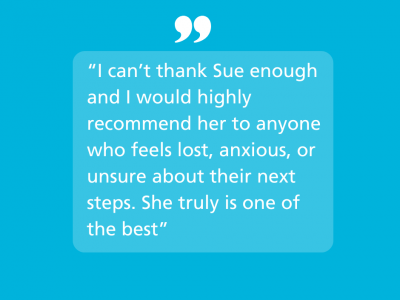- Home
- Anxiety
- Depression
- Emotional Eating
- Living with a long term health condition - Our Talking Health team
- Loneliness
- Menopause
- Mindfulness
- Obsessive compulsive disorder (OCD)
- Panic Attacks
- Phobias
- Pregnancy & Parenthood
- Prolonged Grief (Grieving)
- PTSD
- Sleep Difficulties
- Stress
- Veterans mental health
- Needs We Can and Cannot Meet
- Cognitive Behavioural Therapy (CBT)
- Eye Movement Desensitisation & Reprocessing (EMDR)
- Employment Support
- Counselling for Depression
- Online Self-help
- Mindfulness
- Wellbeing Workshops
- Join the team
- What to expect at your first appointment
- Testimonials
- Talking Health team
- Learn about mental health
- FAQs
- Mental Health Resources
- Blog
- Video Appointments
- Supporting someone through TALKWORKS: A guide for carers and loved ones
- Your feedback
- Making contact if you are deaf
- I need help now
Access support from TALKWORKS
Self-refer to TALKWORKSAccess support from TALKWORKS
Self-refer-
What we can help with
- Anxiety
- Depression
- Emotional Eating
- Living with a long term health condition - Our Talking Health team
- Loneliness
- Menopause
- Mindfulness
- Obsessive compulsive disorder (OCD)
- Panic Attacks
- Phobias
- Pregnancy & Parenthood
- Prolonged Grief (Grieving)
- PTSD
- Sleep Difficulties
- Stress
- Veterans mental health
Access support from TALKWORKS
Self-refer to TALKWORKS - How We Can Help You
- About Us
- Useful Resources
- Get in touch
- Self-refer
What is the best way for coping with chronic obstructive pulmonary disease?
Chronic obstructive pulmonary disease (COPD) is a group of lung conditions that cause breathing difficulties. COPD is a long term health condition which mainly affects adults that are over 35 who smoke.
If untreated, it can cause breathing problems to get worse over time, so it’s important to seek medical advice if you have any of the following symptoms:
- Increasing breathlessness (particularly when you're active)
- A persistent chesty cough with phlegm – some people may dismiss this as just a "smoker's cough"
- Frequent chest infections
- Persistent wheezing
Symptoms can get worse from time to time, so it’s best to start treating COPD as soon as possible to try and reduce the effects.
What help is available?
While there is currently no cure for COPD, the majority of cases are related to smoking. If you are a smoker then it’s advised you stop as this can help to slow the progression of the condition. Inhalers and tablets can also help to control the symptoms, as well as pulmonary rehabilitation.
While looking after yourself physically is important, you must also that you take into account the emotional challenge of coping with COPD. Did you know that those living with a long-term health condition are more than twice as likely to develop mental ill-health? There are a number of things that can contribute to this, including worrying about the future, stress around managing your health and coming to terms with the diagnosis. People can feel ashamed to admit that they are struggling, and may not know where to turn.
Why TALKWORKS?
The TALKWORKS Talking Health team is a specialist team that is here to help. We have a dedicated team of practitioners, experienced in working with people to help manage the emotional difficulties that often go hand in hand with experiencing a long-term physical health condition.
Our Talking Health team support people living with chronic illness and depression to help those suffering to lead a healthier and happier life. The team use Cognitive Behavioural Therapy (CBT) to look at how your thoughts, feelings and behaviours interact. They then work with to help you make changes to feel better - both physically and emotionally.
One of our patients previously said: “My therapist was always calm and caring and made me feel normal when I felt like nobody could understand.” – Talking Health Patient
If you would like more information on our Talking Therapy Services, or would like to self-refer to TALKWORKS, you can visit our website or speak to a member of the team by calling 0300 555 3344.
Related Posts

Charlie thanks Sue for the employment support she received
Posted by Admin on 1 December, 2025
.png)
Simone shares her story and thanks TALKWORKS
Posted by Admin on 9 December, 2025

